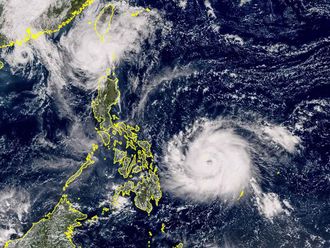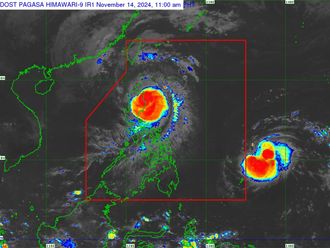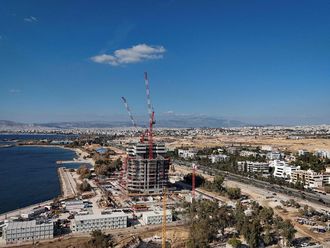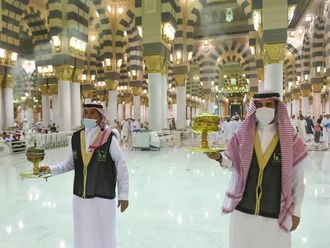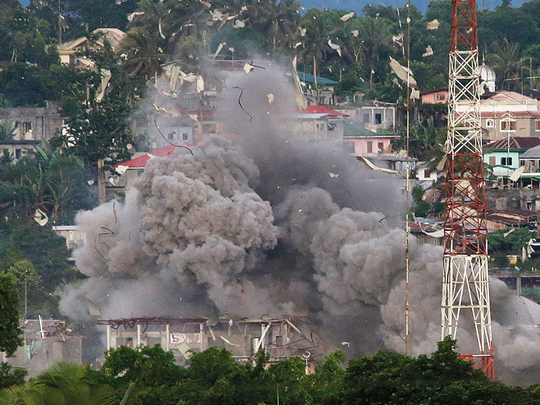
Manila: The importance of Marawi City as a vital territory in Mindanao cannot be understated as jets zoom and helicopters clatter over the city in a steady stream delivering ordnance since May 23, as Maute rabidly held on to the city despite heavy loses.
President Rodrigo Duterte was firm on his order last Monday, “finish the campaign” to retake Marawi in three days. The leader has cause for ordering a swift end to the campaign as the battle for the city continues. A day further into the conflict may be one day too many. On the 16th day of siege, 20 civilians and 39 government forces were killed against 134 Maute and its sympathisers. There are still an undetermined number of hostages being held by the group, which had professed allegiance to the Daesh.
“For every day that this conflict continues there’s more hardships for our families,” Sittie Salam (not her real name) told Gulf News in an interview.
A protracted conflict plays to the advantage of the militants. “For each day that the fighting continues, more people get angry with the situation and the more chance that the Maute could convert them to their side,” said Sittie, a Moro professional from Marawi City, who had agreed to be interviewed despite the fact that her family risks retribution for talking to the press if the Maute gets to know.
In a place where families are closely intertwined by blood and affinity, trust had been easy to come by until the Maute came.
Maute are made up largely of Maranaos or people of the lake (Lanao) and profess loyalty to Daesh, a group that adheres to a strict implementation of Sharia law. It was founded by brothers Abdullah and Omar who had been exposed to radicalism in their studies in the Middle East. Maute’s brand of Islam is similar to what another group of militants, the Abu Sayyaf, has been advocating for more than two decades in Basilan and Sulu.
“With the arrival of the Maute and their radical beliefs, some Maranaos had to forgo their close familial ties. They could only be with people whose interpretation of Islam was the same as theirs,” Sittie said.
In one family, there may be some who adhere to the strict interpretation of the Sharia law, but others may not agree with him or her, she said.
Originally called Dansalan, the city’s name was changed during the late 1970s to Marawi City and appended with the phrase “Islamic City” ostensibly to gain funding support from the Middle East.
Maranaos had been largely regarded as astute traders and scholars. Marawi City is a centre for Islamic learning with many universities and madrasas. More than 98 per cent of the city’s 210,000 inhabitants are Muslims.
According to Sitti, Maranaos look up to the Islamic practice of the Arabs in Saudi Arabia.
“But largely Maranaos have their own culture that affects how Islam is being practised,” she said.
But as much as Marawi City has religious significance to the Maute and Moros (Muslims in the Philippines), the city also holds strategic importance for the radical group.
Located 700 metres above sea level, Marawi City may not have the same material and resources as the nearby areas but its strategic significance was not lost to the Maute, who had also attempted to grab Butig, another area at the rim of the Lanao Lake, in the past.
Butig had been the site of many battles during the conflict between the government and the Moro National Liberation Front and the Moro Islamic Liberation Front. Last year, Maute launched two attempts to take the territory.
Lake Lanao and consequently Marawi City, is close to hydropower plants that provide energy and water supply to a wide expanse of Central as well as Northern Mindanao.
“Marawi City is strategic for energy security since it is a major source of hydropower, as much as a key source of energy. Marawi City was also from where the Maute launched its recent attacks,” former army general Joselito Kakilala says.


